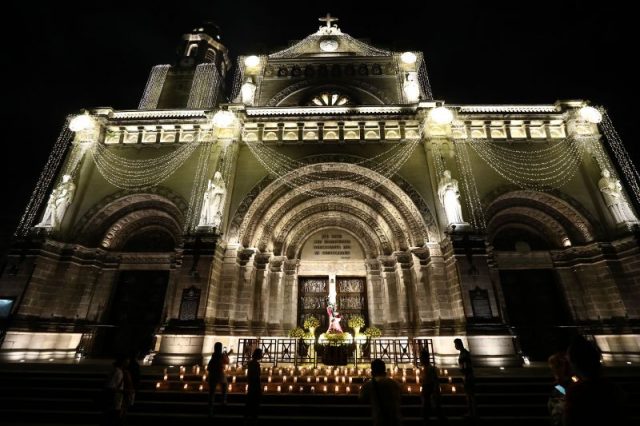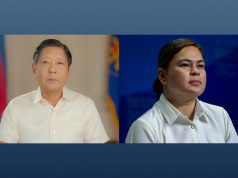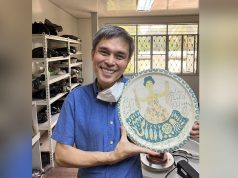
A commentary
One of the rare times that I actually agree with the late Bro. Eli Soriano, a rabid anti-Catholic, was when he said in a televised debate with other religious leaders—which included Radio Veritas’ Fr. Anton Pascual—that churches should not endorse and campaign for particular candidates and political parties, especially to their flock.
It seems that the supporters of Vice President Leni Robredo try to imply that the Catholic Church is endorsing her presidential bid because of her photo-ops with bishops, priests, religious sisters and seminarians wherever she is campaigning.
Let’s be clear with these facts: She meets with clerics, especially with bishops, as a matter of courtesy. This is not necessarily an endorsement.
Bishops, who are endowed with the authority to teach the faithful with authority regarding Catholic doctrines and morals, has never officially endorsed her or anybody else.
Praying over or laying hands over her and for any other candidates for that matter is not an endorsement.
Bishops or priests can even lay their hands over candidates who are blatantly lying and have taken part or have benefited from ill-gotten wealth if they wish to be prayed over or if, repenting with contrition deep in their hearts, they wish to be absolved of their mortal sins.
The Catholic Church, as an institution, cannot officially endorse anybody who seeks to run for public office.
Bishops and priests cannot use the pulpit, as reiterated by Cebu Archbishop Jose Palma, to campaign for anybody. By “pulpit,” I mean the teaching authority, believed to have come from Jesus Christ himself, for pastors in matters of doctrine and morals.
The Acts and Decrees of the Second Plenary Council of the Philippines (PCP II, 340) states that:
“[The] Church’s competence in passing moral judgments even in matters political has been traditionally interpreted as pertaining to the clergy.”
“The clergy can teach moral doctrines covering politics but cannot actively involve themselves in partisan politics,” it adds.
The same decree also states that “religious men and women are also included in this prohibition.”
Moreover, the Catechism of the Catholic Church (CCC)- the summary of all its teachings – also points this out saying that partisan activities are beyond the pastoral duties of those in Church hierarchy.
CCC 2442 states that:
“It is not the role of the Pastors of the Church to intervene directly in the political structuring and organization of social life.”
The Code of Canon Law, the official law governing the Church, also echoes the same sentiment but specifically pointed out an exception.
Canon 287 §2 states that “[Clerics] are not to have an active part in political parties and in governing labor unions unless, in the judgment of competent ecclesiastical authority, the protection of the rights of the Church or the promotion of the common good requires it.”
But then there are priests, religious sisters and seminarians who are openly and are even actively campaigning for certain political contenders. Are they violating anything? Is this okay?
There would be an obvious violation and abuse of authority if a priest, while preaching during mass, tells the faithful to vote for anybody. If a priest does this, he should be called out. More so if a bishop does so.
However, clerics and religious sisters, just like anybody else are individuals given by God with consciences that enable them to have certain convictions, including political convictions. They are also citizens with right to express and exercise their political sentiments.
The Church remains to play the role of being society’s conscience, even in politics. It would be wrong if a cleric or the Church stands idly in the face of political movements that enable immorality and injustice, especially if it oppresses the marginalized.
It would be a grave betrayal for our prophets, saints and even to Jesus himself if we fail to “proclaim liberty to the captives and recovering of sight to the blind, to set at liberty those who are oppressed.” (Luke 4:18) These assertions are spiritual, but they are obviously political.
So, yes, the Church is not officially endorsing anybody in the 2022 elections. But no, the Church cannot be apolitical.
—
Ted Tuvera worked as a reporter for The Daily Tribune. He is currently a seminarian at the Archdiocese of Capiz.









